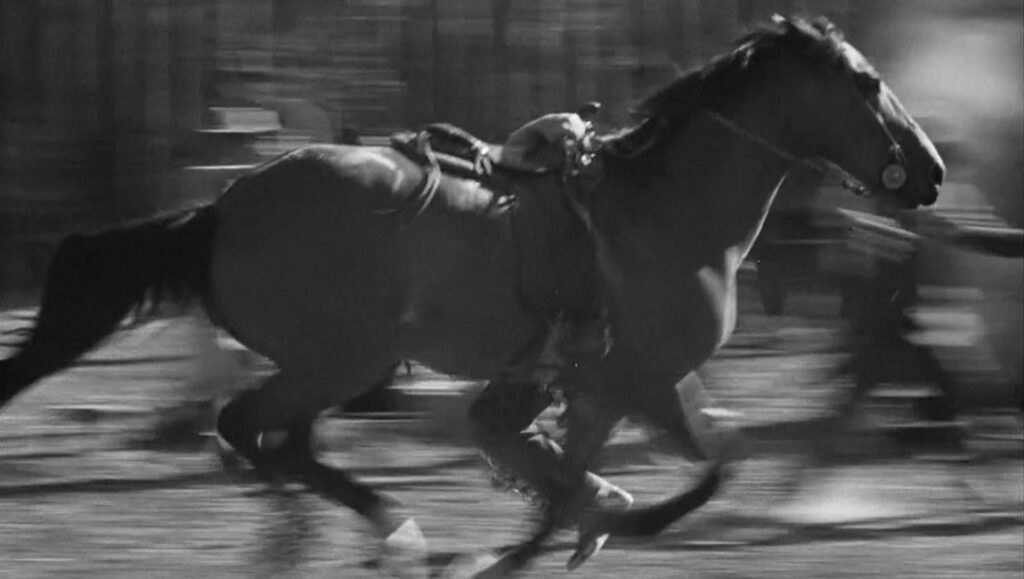The second chapter of Argentine director Nicolás Zukerfeld’s hour-long cine-essay, There Are Not Thirty-Six Ways of Showing a Man Getting on a Horse, is a fleet, funny, and inventive piece of work. Narrated largely against a black screen, with only the occasional textual annotation or visual illustration, it tells of a film professor’s attempts to trace the origins of a widely cited, inconsistently translated, and possibly apocryphal quote by American director Raoul Walsh. The saga begins with a rushed, bleary lecture, during which the unnamed professor recalls the version given in the film’s title (“There are not thirty-six ways of showing a man getting on a horse”), but soon encompasses a series of dead-end Google searches, desperate emails, excerpts of moldering magazines, and a whole trail of writers and critics (including Edgardo Cozarinsky, David Bordwell, Louis Skorecki, and Serge Daney, to name but a few). It would be too much to call this obsessively detailed, ouroboros-like account a Borgesian ficción, but for its wry tenor, quasi-autobiographical double-backs, forking narrative lines, and headlong momentum, it can nonetheless be situated within a broader tradition of Argentine literature.
The catch, though, is that this section constitutes only the final third of Zukerfeld’s film, whose first 40 or so minutes are composed entirely of clips from Walsh’s extensive filmography, presented without context or commentary, and rather tediously arranged according to specific gestures or movements (mounting and dismounting horses, entering rooms, taking tea, and the like). In theory, this opening section should operate as a meta-history of Walsh’s oeuvre that would then play off of the materialist digressions of the film’s second chapter. But in practice it comes across as merely labored, and also largely detached from what follows. Still, if Zukerfeld, evidently a devoted cinephile (or else just a practiced poseur), fails to fully convey his enthusiasm for Walsh’s movies, he does at least paint a poignant picture of that effort. In the film’s closing punchline, one recognizes the commingled pain and pleasure of private obsession.
Published as part of NYFF 2020 — Dispatch 3.


Comments are closed.